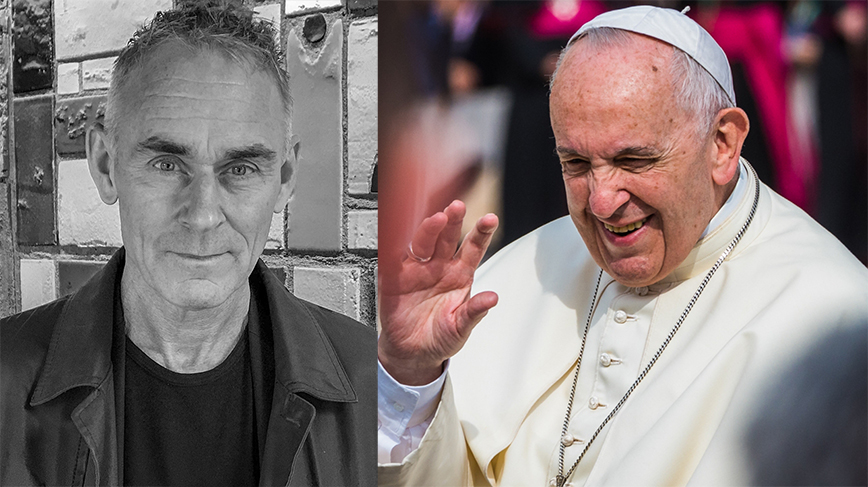‘You don’t usually expect the pope to take notice’

As a world-leading researcher and writer on environmental history, KTH Professor Sverker Sörlin is used to seeing his work widely cited. But getting mentioned by Pope Francis took him by surprise.
Last week Pope Francis issued a statement on the global climate crisis which referenced a book Sörlin published nearly 14 years ago with Cambridge University Professor Paul Warde. In calling on humanity to reestablish a “healthy and harmonious” relationship with nature, the pope paraphrased a passage from the introduction, “Making the Environment Historical” of the two researchers’ book, Nature’s End.
“Human groupings have often ‘created’ an environment, reshaping it in some way without destroying it or endangering it,” Francis wrote in what is known as an Apostolic Exhortation, a routinely-published message to Catholics that highlights key points about a particular issue.
“When you write something you don’t expect the pope to take notice, and to use it in his communication with his multi-billion audience,” Sörlin says.
What is the pope referring to?
"It’s a concept that I developed with Paul Warde and Libby Robin (from Australian National University), that the environment isn’t this single thing that is out there. Rather it’s a human product in all dimensions of the word—from nature that we change into something else that we call ‘the environment’—to this conceptual, legal, political and technological phenomenon that we share responsibility for as humanity, which is an historical process over a long period of time.”
You must be pleased with the mention.
"Yes, of course. We see this concept of a constant ‘environing’ has been gaining ground in the last several years. There’s also the fact that ours was one of only two academic citations in the pope’s message."
The pope is a member of the Jesuit order, which is known for its academic rigor. Do you see a connection there?
"If you know about the Jesuits and their relationship to research, truth and evidence, it’s not surprising. Many Jesuits think of creation as divine and therefore as something to cherish and care for. I know from the research circuit certain scientists who circle around Pope Francis, whom he consults with and listens to.
"There’s little bit of irony that a technical university, in a Lutheran country, well out in the north, close to the Arctic circle, is being cited by this divine authority in Rome. It makes you smile. It tells you a little about the way good work can sometimes travel."
